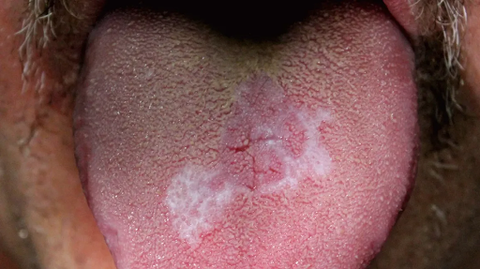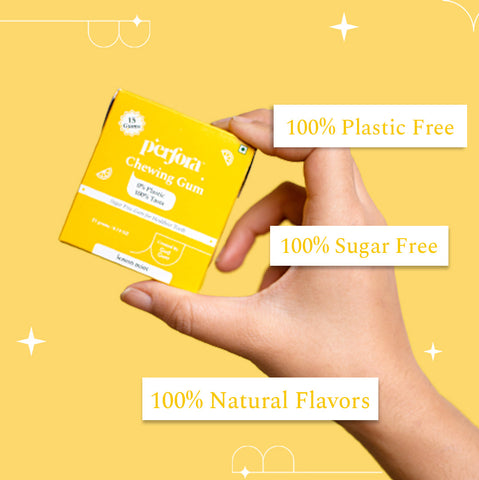Have you ever noticed a white coating on your tongue when you look in the mirror? Do you wonder if it has anything to do with your bad breath? If so, you are not alone.
Many people suffer from bad breath from tongue and white tongue plaque, and they are often related. In this article, we will explore the causes, symptoms, and treatments of bad breath and white tongue, and how you can improve your oral health and confidence with Perfora’s SLS free products.
What Causes a White Tongue?
A white tongue is a condition where the surface of your tongue becomes covered with a white or yellowish layer of dead cells, bacteria, food debris, and fungi. This layer is called tongue plaque, and it can affect the appearance, taste, and smell of your mouth.
There are many possible causes of a white tongue, such as:
- Poor oral hygiene: If you don’t brush your tongue regularly, you may allow the plaque to build up and harden, making it difficult to remove.
- Dry mouth: If you don’t produce enough saliva, your mouth may become dry and create a favourable environment for plaque growth.
- Smoking: Smoking can irritate your tongue and reduce your saliva flow, leading to a white tongue and bad breath.
- Infections: Some infections, such as oral thrush, strep throat, and tonsillitis, can cause inflammation and white patches on your tongue.
- Dehydration: If you don’t drink enough water, your tongue may become dry and white.
- Diet: Eating foods that are high in sugar, dairy, or yeast can encourage the growth of plaque and fungi on your tongue.
- Mouth breathing: Breathing through your mouth can dry out your tongue and cause a white coating.
The Link Between White Tongue and Bad Breath
A white tongue can be a sign of bad breath and white tongue, also known as halitosis. This is because the plaque on your tongue can harbour millions of odour-causing bacteria and fungi, which produce volatile sulphur compounds (VSCs) that smell unpleasant. These VSCs can also affect your taste buds and make your food taste bitter or metallic.
Bad breath from tongue can also be caused by other factors, such as:
- Gum disease: If you have plaque and tartar buildup on your teeth and gums, you may develop gingivitis or periodontitis, which can cause inflammation, bleeding, and infection. These conditions can also produce foul-smelling gases that can worsen your breath.
- Tooth decay: If you have cavities or broken fillings, you may have food particles and bacteria trapped in your teeth, which can rot and emit a bad odour.
- Sinus problems: If you have a sinus infection, allergies, or postnasal drip, you may have mucus and bacteria dripping down your throat, which can cause a bad smell from your tongue.

Symptoms and Signs: Bad Breath and White Tongue
If you have bad breath and white tongue, you may experience some of the following symptoms and signs:
- A white or yellowish coating on your tongue, especially at the back or sides
- A bad taste or smell in your mouth, which may be worse in the morning or after eating certain foods
- A dry or sticky mouth
- Difficulty swallowing or speaking
- A burning sensation or soreness on your tongue
- Redness, swelling, or bleeding of your gums
- Tooth pain or sensitivity
If you have any of these symptoms or signs, you should consult your dentist or doctor to rule out any serious underlying causes and get the proper treatment.
Managing White Tongue to Improve Breath
If you have bad breath and white tongue, you may wonder how to get rid of white tongue bad breath. The good news is that there are some simple and effective ways to manage your white tongue and improve your breath, such as:
- Clean your tongue: The most important step is to clean your tongue every time you brush your teeth, using a soft-bristled toothbrush or a tongue scraper. This will help remove the plaque and bacteria from your tongue and keep it clean and fresh. You can also use a toothpaste that contains baking soda, which can help neutralise the acids and odours in your mouth.
- Hydrate your mouth: Drinking plenty of water throughout the day can help keep your mouth moist and prevent dryness and plaque buildup. You can also chew sugar-free gum or suck on sugar-free candies to stimulate your saliva production and wash away the plaque and food particles from your tongue. Avoid drinks that can dehydrate your mouth, such as alcohol, coffee, or soda.
- Change your diet: Eating a balanced and healthy diet can help improve your overall oral health and prevent white tongue and bad breath. You should avoid foods that can cause or worsen your white tongue, such as sugary, dairy, or yeast-rich foods.
- Use a tongue cleaner: To effectively manage your white tongue and improve your breath, incorporating a tongue cleaner into your oral hygiene routine is highly recommended. This tool is designed to efficiently remove the plaque, bacteria, and food debris that can lead to bad breath and oral health issues. Learn more about how to use a tongue cleaner and explore Perfora’s collection of tongue cleaners.

When to See a Professional: White Tongue and Persistent Bad Breath
While most cases of white tongue and bad breath can be managed at home with proper oral hygiene and lifestyle changes, sometimes you may need to see a professional for further diagnosis and treatment. You should see your dentist or doctor if:
- Your white tongue and bad breath persist or worsen despite your efforts to improve them
- Your white tongue and bad breath are accompanied by other symptoms, such as pain, bleeding, fever, or weight loss
- Your white tongue and bad breath are caused by an underlying medical condition, such as diabetes, kidney disease, liver disease, or acid reflux
- Your white tongue and bad breath are affecting your quality of life, self-esteem, or social interactions
Your dentist or doctor can examine your mouth and tongue, perform tests, and prescribe medications or procedures to treat your white tongue and bad breath. They can also advise you on the best oral care products and practices for your specific needs and preferences.
Conclusion
A white tongue and bad breath are common oral health problems that can affect anyone at any age. They are often caused by poor oral hygiene, dry mouth, smoking, medications, infections, dehydration, diet, or alcohol. They can also be a sign of more serious health issues, such as gum disease, tooth decay, sinus problems, or medical conditions.
The good news is that you can manage your white tongue and improve your breath with some simple and effective steps, such as brushing your tongue, rinsing your mouth, hydrating your mouth, changing your diet, and using Perfora’s safe and effective products like the 100% plastic and sugar free chewing-gum. These steps can help you remove the plaque and bacteria from your tongue, prevent them from growing back, and neutralise the odours and acids in your mouth. They can also help you improve your overall oral health and well-being.
However, if your white tongue and bad breath persist or worsen despite your efforts, or if they are caused by or accompanied by other symptoms or conditions, you should see your dentist or doctor for further diagnosis and treatment. They can help you find the best solution for your white tongue and bad breath, and restore your confidence and smile.
We hope you enjoyed this article and learned something new about white tongue and bad breath. If you have any questions or comments, please feel free to contact us or leave a comment below. We would love to hear from you and help you with your oral health needs.

Frequently Asked Questions on White Tongue Plaque
Q: Does plaque cause bad breath?
Yes, plaques can cause bad breath, as they are composed of dead cells, bacteria, food debris, and fungi that produce foul-smelling gases. Plaques can also affect your taste buds and make your food taste bitter or metallic.
Q: How to get rid of white tongue bad breath?
The best way to cure bad breath from your tongue is to remove the plaque and bacteria from your tongue by brushing your tongue, rinsing your mouth, hydrating your mouth, changing your diet, and using Perfora’s safe and effective products. These steps can help you neutralise the odours and acids in your mouth and improve your oral health and well-being.
Q: Does white tongue cause bad breath?
Yes, white tongue can cause bad breath, as it indicates the presence of plaque and bacteria on your tongue that produce unpleasant odours. White tongue can also affect your taste buds and make your food taste bitter or metallic. Therefore, it is important to manage your white tongue and improve your breath by following the steps mentioned in this article.






